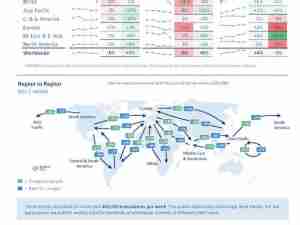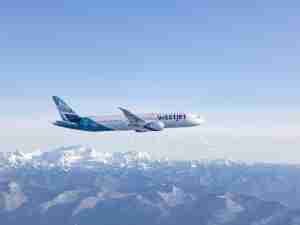Boeing Skips Annual Jetliner Price Hike Amid Sluggish Sales
By: | Aug 29 2016 at 03:38 PM | Air Cargo
Boeing Co. skipped raising airplane prices for the first time in seven years as it contends with demand cooled by economic uncertainty, cheap oil and a glut of twin-aisle aircraft.
The U.S. planemaker typically adjusts its catalog prices for commercial aircraft once a year to reflect an internal formula that takes into account increases in the costs of goods, services and labor. Boeing boosted prices 2.9 percent last year and 3.1 percent in 2014.
While final sales usually are heavily discounted, Boeing’s decision to hold the published prices steady for the first time since the Great Recession signals changing market dynamics to customers and suppliers, said aerospace consultant Richard Aboulafia.
Planemakers have seen demand clipped by the Brexit vote, a commodities market crash in Latin America and moderating oil prices, which have encouraged carriers to hold on to older models they might have otherwise retired.
“The industry is a poster child for deflation at this point,” Aboulafia said by telephone Monday. “You can deny that when times are good but when times are clearly past their peak there’s really no point in pretending.”
$400 Million
The prices posted in July 2015 will continue to serve as a basis for customer discussions, Boeing spokesman Doug Alder said via e-mail. They range from $80.6 million for Boeing’s smallest narrow-body aircraft, the 737-700, to $400 million for the 777-9, the first twin-engine plane designed to haul more than 400 travelers.
“From time to time, we do not process an update to our pricing catalog. Boeing didn’t publish an update in 2001 or 2009,” Alder said. “Our goal is to set the standard for value and service for our customers.”
Boeing shares pared their gain on the news. The stock was up 0.4 percent at $132.77 at 3:25 p.m. in New York, 81 cents below the trading session high. Boeing had retreated 8.6 percent this year through Friday, second worst among members of the Dow Jones Industrial Average.
Boeing landed 335 net orders this year as of Aug. 23, while rival Airbus Group SE logged 323 net sales through the end of July. The activity has dropped off from the large order hauls that the planemakers enjoyed earlier this decade as part of an unprecedented aerospace updraft.
Under new Chief Executive Officer Dennis Muilenburg, Boeing has been girding for a leaner times by trimming payroll and seeking concessions from suppliers. Keeping prices unchanged underscores the importance of those efforts, Aboulafia said.
“If you are getting super-tough with your suppliers this is an important message to send,” he said. “The alternative would weaken your position.”







